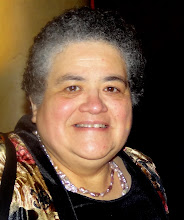
On that morning in the summer of 1975, my friend, Juan, told me we had to leave El Salvador immediately. Juan is Guatemalan, and had driven me to El Salvador on the last leg of my visit to Central America. I was there to see my mother's family, and to see my beloved Guatemala and El Salvador, my ancestral homes, again. I cannot believe that no one—either in the United States or in Central America—warned me that there were civil wars going on in both countries. I read the daily paper; my mother was in close contact with her relatives there, but nobody told me, no doubt, because it was not on their radar.
That morning, Juan came in and said we had to leave immediately. He really could not explain why—he did not understand exactly what was going on, but his friends had told him that there was going to be trouble and we should leave immediately. The next day, back in Guatemala, we heard that the University of El Salvador had been taken over by the military. I still have the notebook I bought at the university before we left. I have never written in it but it bears the university's logo. Soon after I returned to San Francisco, my friend Osvaldo was murdered walking through a park near his home in El Salvador. Was it a simple crime, a mugging gone wrong? Or was Osvaldo involved in the underground resistance to the dictatorship? What were you going to do about it if you thought the government engaged in state-sponsored terrorism against you or someone you loved? What could anyone do against the power of the state, even a tiny state like El Salvador? The state is always more powerful than the individual.

Guatemala was also in turmoil; the civil war had afflicted the country for sixteen years by that time but the bloodthirsty dictator, Rios Montt, had not yet come to power and residents of the cities were disengaged from the genocide in the countryside. Yet to an outsider, not much was going on in either country. Their newspapers reported little, and American newspapers said nothing at all. Your relatives insisted that if you just stayed away from politics, you would be all right. When something bad happened, there was great reluctance to read too much into it.
What could you do if your own country, the United States, was supporting the dictatorships in El Salvador, Guatemala, and Nicaragua? If it was providing the dictators' army’s arms and bullets? My country, the United States was doing just that. What could one person do?
We, whether raised in Central America or the children of immigrants in the United States, were brought up to eschew politics of any kind: ANY political involvement could get you killed. My mother harangued my father about his membership in the Teamsters for his entire working life, working herself up into a total fury when he became the shop steward (union representative) at the warehouse where he worked. When my mother found out that I was in the women’s movement, she went ballistic. Had she ever told us about the politics in her country, we might have been more responsive to her extreme reaction to what seemed to us to be commonplace activities.
To hear her tell it, life in El Salvador and Guatemala before she came to the United States had been a pastoral delight. Since I had visited Central America with her when I was a child, I had clear memories of their green hills, abundant flowers, and trees heavy with tropical fruits. What had been concealed from my child's eyes was the heavy hand of political repression. Later, as a graduate teaching assistant, I had students from upper-class Central American families who were dumbfounded to hear of the civil war going on in their countries, right under their noses. Of course, you are not going to see much of the world around you if you live in a gated community, surrounded by walls topped with broken glass to keep out intruders.
When, around 1979, I became involved in the women’s movement, I thought she would have a coronary. Nine years later, when I started a graduate program in Latin American history, I thought she took it as a declaration of war. I had thought she would be pleased; it would keep me linked to the culture of her ancestors, But her reaction was to demand, “Why would you want to do that? Don’t you know how dangerous it is?” Well, no, I did not. I had no idea what she was afraid of; had she ever confided in me, I might have known. I might have understood that what I took as irrational secrecy was actually deadly and justified fear.

No comments:
Post a Comment